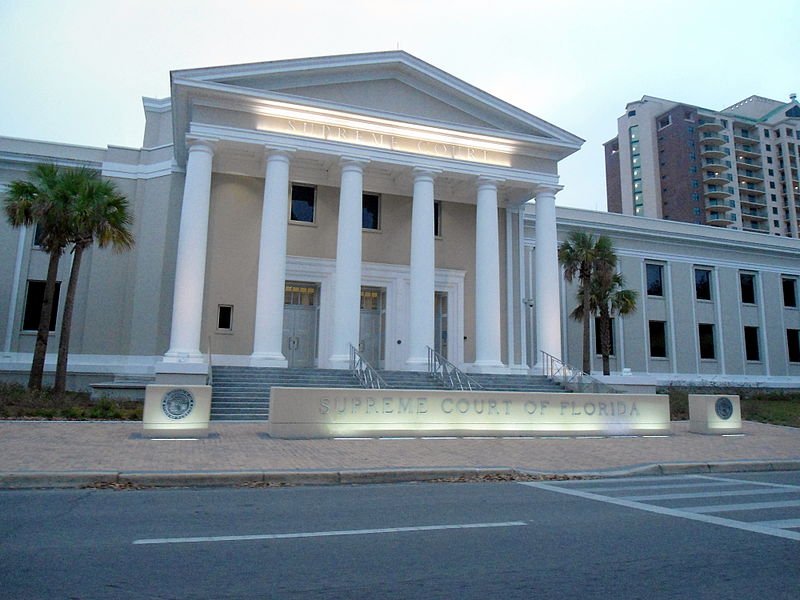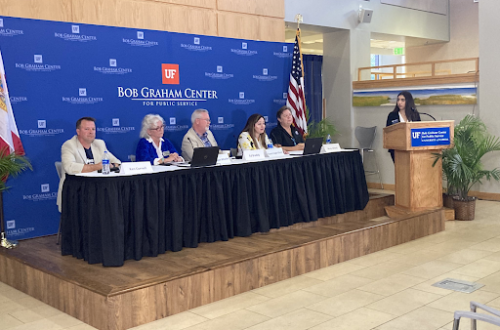Rafaelle Sousa is currently awaiting trial for attempted murder and aggravated child abuse after abandoning her newborn baby, but she is also fighting a 2014 Florida statute that allowed the court to terminate her parental rights to her older son.
On May 8, 2019, Sousa gave birth to her daughter at her apartment complex near Boca Raton, Florida. She thought the baby was stillborn, so she put the newborn in a bag and placed it in the dumpster outside the apartment building.
Maintenance workers heard the baby’s cries and were able to rescue her in time to save her life. They also found a receipt for a beauty supply store in a similar bag, which allowed law enforcement to determine that the baby belonged to Sousa.
SWAT forces arrived at her front door the next day, and Sousa confessed to everything.
Sousa’s lawyers later tried to suppress this confession in court, arguing that because Sousa was not read her full Miranda Rights, the confession was inadmissible. However, since Sousa was not technically under arrest when she spoke to Detective Liriano, the judge ruled that the confession could be used as evidence.
The infant, who was later named Sarah, is now in the custody of her father, Carlos Martins. The two were present when Sergio Vega and Yusdani Gonzalez-Delgado, the two maintenance workers who found Sarah, received Samaritan Awards last year.
A timeline following Rafaelle Sousa’s journey through the legal system. (Mia Cafaro, Florida Political Review)
After Sousa’s arrest in 2019, the Florida Department of Children and Families filed a petition to terminate her parental rights to Sarah and her then four-year-old son. A Palm Beach County judge affirmed this petition. The termination was based on a state law that state authorities are not required to prove a “nexus between egregious conduct to a child and the potential harm to a child’s sibling.”
Essentially, the law means that a parent can lose custody of all of their children if they are suspected to be abusing one. Attorneys representing parents in this situation have challenged the case twice now, once last June and again on Sept. 29 when Sousa’s attorneys presented her case.
According to the records from the ruling, Sousa argued that the law unconstitutionally allowed the state to take custody of her son even though there was no proof that he was at risk in her household. In the end, the 4th District Court of Appeals upheld the circuit court judge’s original decision to terminate parental rights for both Sousa’s son and daughter.
District Court Judges Jonathan Gerber and Mark Klingensmith based this decision on the precedent set by the June case in which the law was ruled constitutional. The June decision stated that, “Egregious conduct toward one child not only threatens the life and safety of the child’s siblings, but also threatens their ‘physical, mental, or emotional health.’”
Judge Martha Warner wrote the dissenting opinion, and she appears to hold a strong belief that the law is unconstitutional. In June, Warner wrote that this law “violates a parent’s fundamental right to parent.” She also pointed out that the goal of the court in the past has always been to terminate parental rights only if absolutely necessary.
Although the Court of Appeals upheld the original decision to enforce the law, it is now asking the Florida Supreme Court to make an official ruling on its constitutionality. Thus, it remains to be seen whether or not Sousa will eventually regain parental rights to her son.
Check out other recent articles from Florida Political Review here.
Featured Image: Unmodified image of the Florida Supreme Court used under a Creative Commons License. (https://bit.ly/3aQOSAv)






One Comment
Dawn Louise Pierce
I HAVE BEEN
Orphan since 1978
WHERE IS HE?
THX
HOBBS INVESTIGATION AND COLLECTION SERVICES DAWN LOUISE PIERCE-HOBBS VP
7209887440